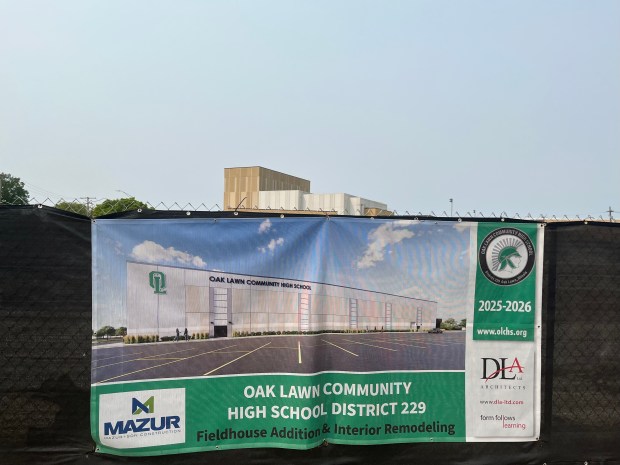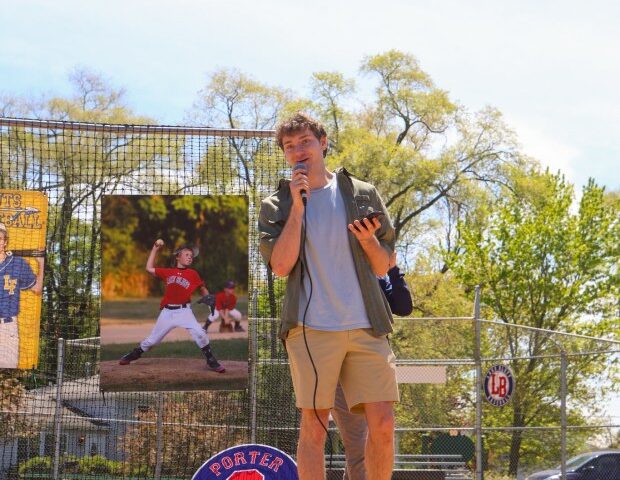After two years of record property tax increases in many suburbs, the Cook County Board is looking into using property tax late fees to give homeowners some relief.
Median tax bills south suburban taxpayers received this year went up about 20%, according to the county treasurer, the biggest increase in the last 29 years. The year before, the median residential tax bill for the north and northwest suburbs jumped 15.7%, the biggest percent increase in the last 30 years.
Now, 13 of the board’s 17 members are calling for a hearing to create a new property tax relief rebate program. They want to pay for it with fees the Cook County treasurer collects from people who pay their bills late.
Lead sponsor Commissioner Bridget Gainer said those fees are coming out ahead of budgeted amounts, providing a potential lifeline “to give people relief right now” amid record spikes. Gainer said she’s witnessed a massive increase in taxpayers seeking help at community meetings in her district. “I’m not going to talk to hundreds of people and do nothing about it,” she said.
The county collected about $54 million in late fees through May of this year, above the budgeted $35 million.
It’s just an idea at this point. And it’s unclear exactly who would qualify, or how much of a rebate they would receive on bills. Cook County residents owe $611 million in new taxes alone this year, so it’s questionable how many homeowners would see substantial help.
Still, with many Cook County residents enraged at recent tax hikes, elected officials are eager to point to something they have done to address the situation. Cook County Treasurer Maria Pappas said the proposal was “grandstanding,” given how quickly the Aug. 1 due date is approaching.
Pappas’ office has been pushing through a series of systemic property tax reforms in Springfield, including a successful effort to cut the annual interest rate on property tax late fees from 18% to 9%. Her office has also been pursuing changes to the state’s system for selling delinquent property taxes.
Taxpayers who can’t afford to pay their bills all at once have the option of making partial payments before the due date, but late payments are charged a monthly interest rate of 0.75%. Those late fees typically go to the county’s general fund.
The county does not offer any rebates or relief for people who can’t afford their bills, though it does offer several exemptions aimed at reducing the impact of assessment increases on the front end. In lieu of help paying their bills, county officials often tell taxpayers to make sure they’re not missing any exemptions they’re eligible for.
The resolution suggests the target beneficiary would be low-income senior households, who were particularly struggling, or those “who are paying more than a sustainable percentage of their annual income on property taxes.”
The county already offers an income-based property tax break for older homeowners. Known as the senior freeze, those over 65 with a total household income of $65,000 or less can apply to have their equalized assessed value “frozen,” which can halt big bill jumps for rising property values. Eligible applicants must apply annually.
Assessor Fritz Kaegi – who has received an earful from south suburban taxpayers in recent weeks – has already voiced support for the county funding a similar “circuit breaker” program that would offer rebates to means-tested homeowners who get unsustainably large bills.
The soonest a hearing could be held would likely be September, Gainer said, after second installment bills are due.
In other board action, after 40 years in its current brutalist building in the city’s medical district, the county’s medical examiner is on its way to a new office.
Spokeswoman Natalia Derevyanny said Medical Examiner’s Office is working to “acquire a new location to accommodate a larger, modern facility that can meet the current requirements and evolving needs of the MEO for decades to come.”
The office operates 24/7 and investigates roughly 5,600 deaths a year.
The county has been looking for a suitable building for the medical examiner to move into for the last five years. This proposed site “has a convenient location to transit and close proximity to the Illinois Medical District, and will enable MEO to create a state of the art facility,” according to the ordinance granting the sale.
The design engineering and new construction won’t start until after the purchase, Derevyanny said.
The full board on Thursday also approved $24 million in legal settlements, including a $7.25 million payment to one of four men known as the “Marquette Park Four” who were wrongfully convicted and imprisoned as teens.
aquig@chicagotribune.com




